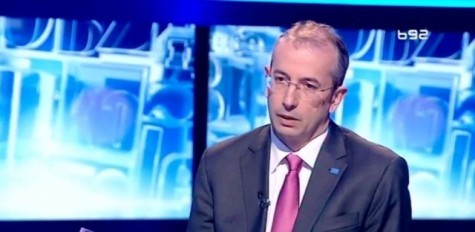Serbia did a lot as regards to legislation, the next step in 2015 is implementation. EU continues to provide assistance for flood relief, the Head of the EU Delegation to Serbia Michael Davenport told B92 television channel in an interview.
Serbia has received compliments and upbeat response for its commitment to EU integration goals. In the Kaziprst programme, Davenport spoke about Serbia’s obligations and Europe’s expectations.
“I think Serbia did a lot in 2014. This mainly concerns the adoption of new laws, action plans… In 2015, implementation comes first, for instance, the implementation of new laws dealing with restructuring and privatisation of public enterprises, implementation of Anti-Corruption Action Plan, and media-related laws.”
Role of local self-governments will be essential in the implementation of these laws, but also as regards to European integration policy, Davenport added.
Speaking about chapters and the fact that so far none of them have been opened, he said that negotiations launched in January can be described as “more or less developing according to the plan”. He also said that a certain progress was achieved in that segment as well, and that he believed the process would be completed in March.
“Chapters dealing with the rule of law, fight against corruption and fundamental rights were always in the focus… The Government is still moving in this direction and it is crucial to further focus on these areas,” he said.
Asked to comment an observation that, according to Transparency’s Corruption Perceptions Index Serbia’s ranking declined compared to previous year, Davenport replied:
“In our Annual Progress Report, we have stated that Serbia created a new legal framework and, above all, an organisational framework aimed at a more efficient fight against corruption, but this was not enough and the results cannot be achieved over night… Surely, what is needed is a new Law on Anti-Corruption Agency so it could tackle the issue more efficiently; also, Anti-Corruption Council, which is a state authority, should be engaged and could provide Government with advisory services in its anti-corruption efforts… This is only the beginning of a long process.”
Asked whether Brussels would pose any new conditions as regards to Kosovo, Davenport replied that, as Johannes Hahn EU Commissioner for Regional Policy stated, there would be none.
“Primarily, this is about continuing the dialogue and implementation of Agreement reached in April 2013. This (Brussels Agreement) was certainly a major achievement, but its implementation would represent an even bigger one… There has not been a standstill in the process, but neither was there a progress we wished to see…”
The biggest challenge of the moment is to take next steps in and start the first round of implementation, Davenport said.




